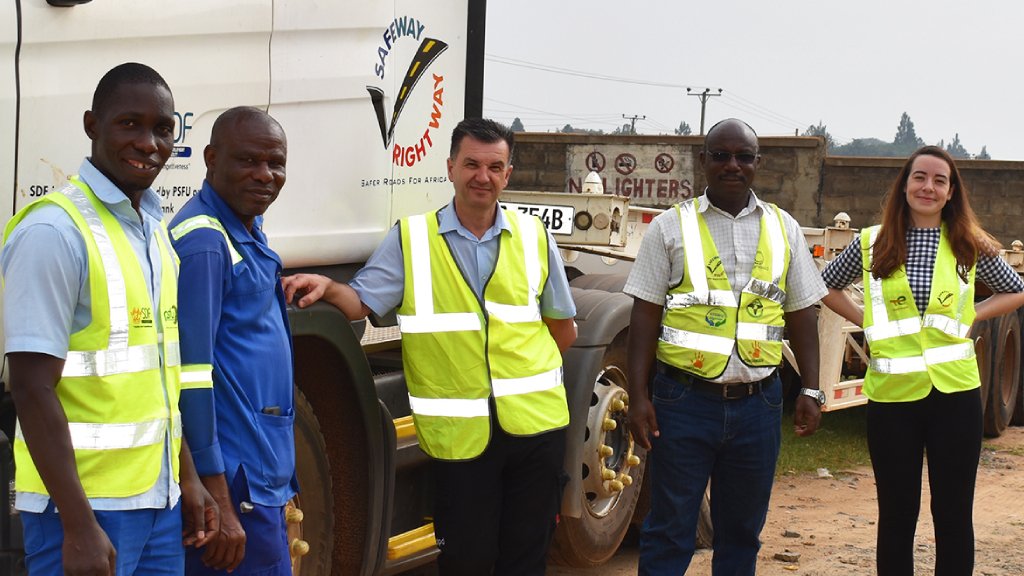Blog
Putting women in the driver’s seat in Uganda
Abbie Rennison, GXO Graduate and Transaid Project Officer | March 08, 2022

This year, International Women’s Day feels a little more special to me.
Last September, I arrived in Uganda, approximately 4,500 miles from my childhood home on the Isle of Skye in northern Scotland. As part of the GXO graduate programme, I’m on secondment to Transaid, which GXO’s U.K. business has been supporting for over 10 years. Transaid is a U.K.‑based international non-profit development organization that empowers people to build the skills necessary to “transform their own lives through safe, available, and sustainable transport.” I am supporting efforts to increase the number of skilled HGV (heavy goods vehicle) drivers — not only to expand domestic productivity, but also to reduce the number of traffic injuries and fatalities on Ugandan roads.
Traffic in Uganda is a challenge. Drivers show little lane-discipline, sometimes inventing additional lanes using the edge of the road, turning a two-lane road into a three‑ or four-lane road. A one-hour journey on a clear road can take several hours longer if there’s heavy traffic. Planning the travel time to a meeting can be tricky!
There are even more challenges for female drivers. Truck driving is still a very male-dominated industry and it’s even more so in Uganda. It can be difficult for women to break into the industry and even harder to gain employment at a reputable company without significant driving experience, which leaves them with no option but to apply to smaller companies that often have little structure and don’t address driver welfare as a key concern.
But we’re trying to turn that around, and the facts are on our side.
Studies show that women comply with traffic laws more than men do; they are generally more cautious as drivers and take fewer risks on the road. This results in them being involved in fewer accidents, using less fuel and reducing vehicle wear-and-tear.
It’s been really exciting to see our female trainees in action — they are so passionate about a career in truck driving. However, one obstacle to increasing the number of female truck driver trainees is that many women can’t picture themselves as truck drivers or think of driving as a career, so a lot of our recruiting is word-of-mouth — women helping other women see their potential.
We’re looking to work with companies that share our goal of increasing the number of female drivers in the industry, and they are out there. We’re currently working with a company that has already seen the benefits from employing female drivers, but due to the limited availability of trained female drivers in Uganda, this company has had to recruit from Kenya. With our project, that is set to change.
Working and living in Uganda has been one of the best experiences of my life. When my time in-country ends in May, it’ll be bittersweet. I’ll miss the work and the people, but I won’t miss the traffic! Soon it will be a challenge for the next graduate from GXO, who will arrive for the second half of 2022.
To all my friends here in Uganda and back in the U.K., I hope you’ll drive safely and have a happy International Women’s Day!